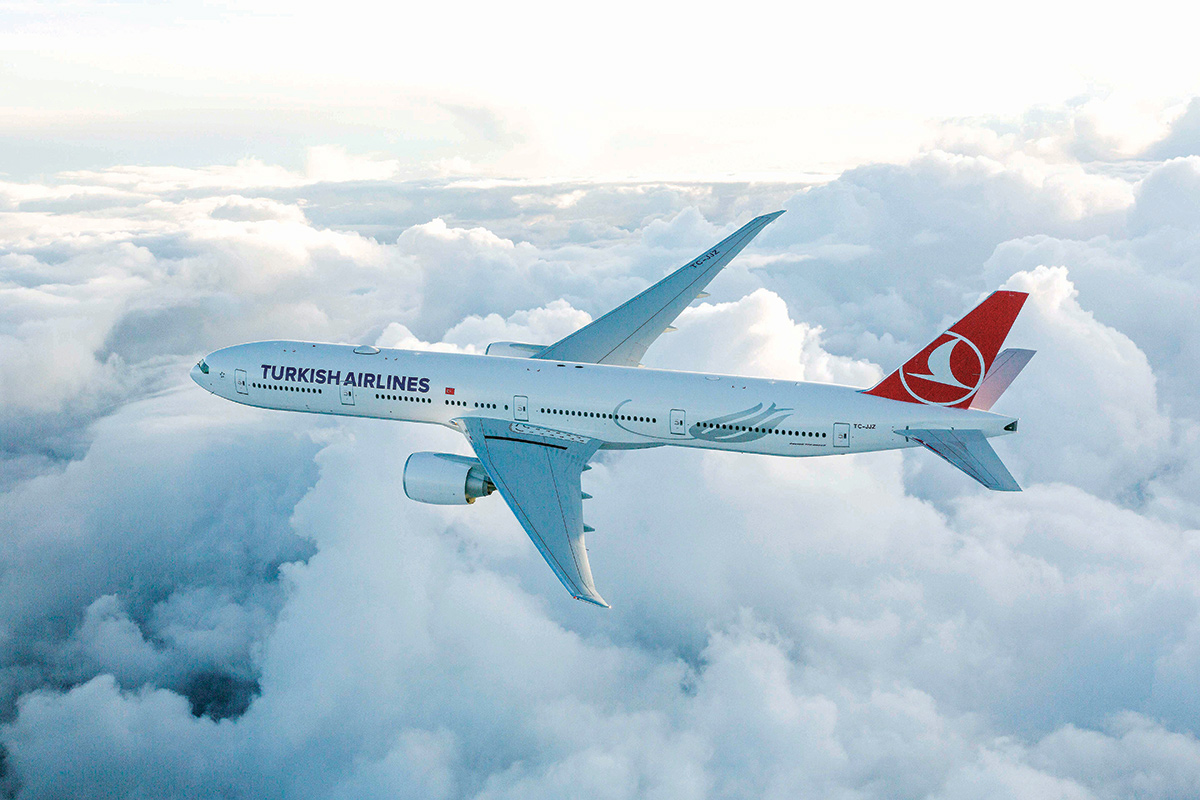
KATHMANDU: Turkish Airlines has started using sustainable aviation fuel in the operation of its flights focusing on protecting the richness of nature for future generations.
Aviation fuel obtained from sustainable sources was used for the first time on TK 1823 flight en route from Istanbul Airport to Paris Charles De Gaulle Airport, on Wednesday. While sustainable fuel will be used for one day a week on the chosen route, there are plans in place to use it on different routes on a wider scale.
Aware of the effect the aviation sector has on climate change, and developing projects to decrease that effect, the flag carrier airport took a significant step towards reducing the carbon footprint of its guests with sustainable aviation fuel. The fuel that will be used for Turkish Airlines has 87% less greenhouse gas compared to fossil fuels.
On the first flight with sustainable aviation fuel, Turkish Airlines Chairman of the Board and Executive Committee, Prof Dr Ahmet Bolat stated, “We are the airline that flies to more countries than any other in the world. This also means we are the airline that introduces its guests to the richest biodiversity as well. We conduct our work towards achieving sustainability with that mentality and responsibility. Our first flight that uses sustainable resources is a part of that vision. We believe that future generations will continue to be able to discover the world and its preserved beauty with Turkish Airlines. Our efforts focused on protecting our world will continue.”
The fueling process is also facilitated by the Turkish Airlines subsidiary Turkish Fuel Services (TFS). Sourced from Neste company, the environmentally friendly product is stored in TFS fuel farm and gets loaded into aircraft after it gets blended with jet fuel. The next goal of the flag carrier goes further than using sustainable fuel for its flights. The global brand is conducting the "Microalgae Based Sustainable BioJet Fuel Project (MICRO-JET)" with Bogaziçi University with the support of TUBITAK. When the project is complete, the first carbon-negative integrated biorefinery of Turkey and Europe will start its service.
This sustainable fuel with high energy helps to decrease harmful particles of SOx and NOx emissions due to clean burn. Produced from sustainable raw materials and without any harmful heavy metals, this fuel will be used once a week as a start in Istanbul-Stockholm flights.
Significant Recycling Effort by Turkish Airlines
Turkish Airlines has started over 100 operational optimisation projects since 2008 in order to lower its carbon footprint and has successfully implemented them throughout the years. With these projects implemented in every stage of the trip along with ground operations, 15,363 tons of fuel was saved, and 48,394 tons of carbon dioxide were prevented from being dispersed to the atmosphere during the third quarter of 2021. During the first three quarters, total CO2 prevention was at 85,119 tons.
During 2019, the best year of global aviation prior to the pandemic, Turkish Airlines saved enough soil to cover 63 football fields while saving 3,648 trees with its preventative measures in aircraft maintenance operations. Preventing machine and aircraft oil to reach natural water sources, Turkish Technic saved enough water to fill 784 Olympic pools.
As for the packaging of the inflight products, global carrier opts to use starch-based material that can be easily reclaimed by nature.
During 2019 flights:
- Usage of over 176 tons of plastic was prevented by using bio packaging
- Combs and shoehorns were removed from travel kits, preventing 105 tons of plastic waste
- By distributing all travel and toy kits without exterior bags, 15 million 229 thousand and 348 bags were rendered unnecessary to produce
- 145,743kg of textile waste were recycled to textile products by licensed recycling firms
- By sorting glass, plastic and paper-based waste at the source, during 2019; 5,624kg glass (6750 grams of glass raw material saved), 67,784kg plastic (1085 barrels of oil saved) and 252,167kg paper (equivalent to 4,287 trees) were recycled.
The flag carrier will continue to take preventative measures to decrease greenhouse gas emissions and maintain its support for efforts to develop a sustainable aviation fuel.
READ ALSO:- Lucky draw winner of Turkish Airlines, Roadhouse joint campaign announced
- Turkish Airlines ranked among top three "Best Global Airlines"
- Turkish Airlines Kathmandu partners with Museum of Nepali Art
- Turkish Airlines operates flights between Istanbul and Luanda in Angola
- Turkish Airlines Business Lounge
- Turkish Airlines operates flights to Newark, New Jersey





